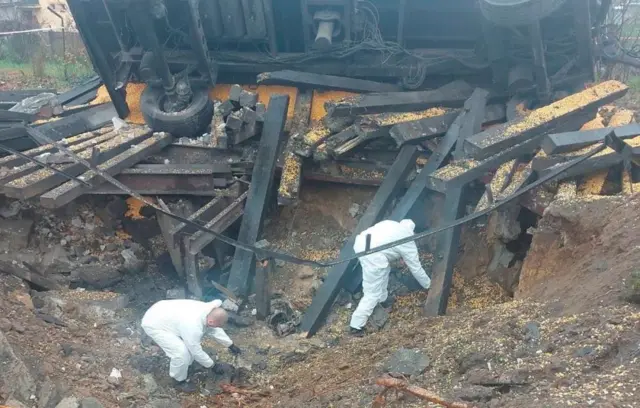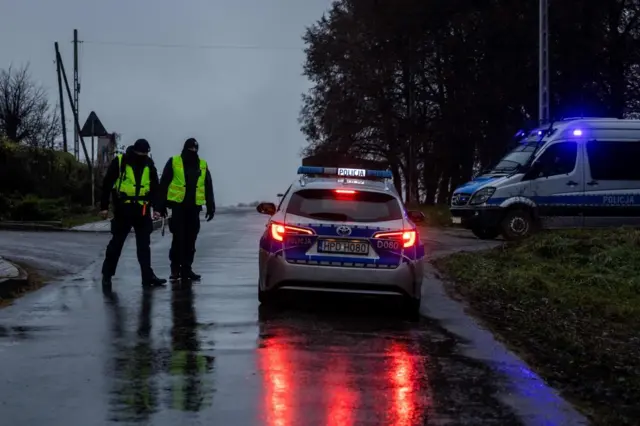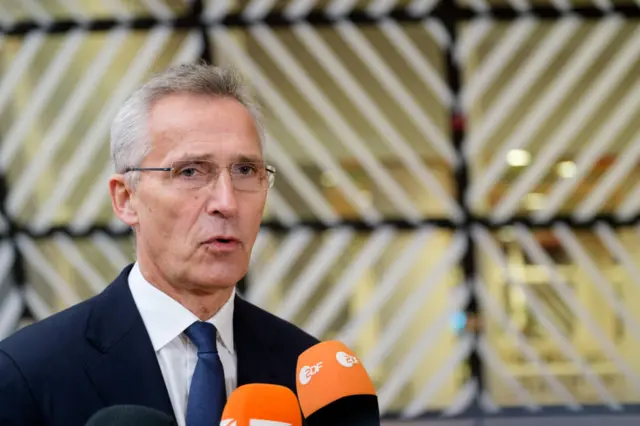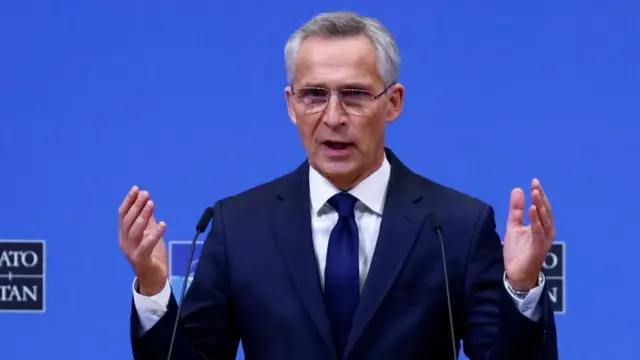Germany sends condolences to Polandpublished at 13:41 GMT 16 November 2022
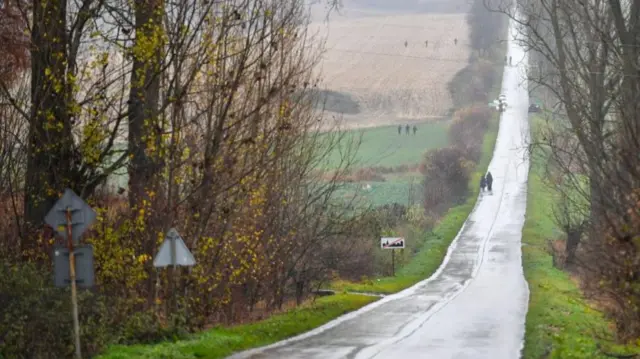 Image source, Reuters
Image source, ReutersPolice and secret services are near the missile site in Przewodow today
Germany and Poland share a 467 km border (290 miles), and both are Nato members.
And earlier, German Chancellor Olaf Scholz spoke to Polish President Andrzej Duda and expressed his condolences over the incident along its border with Ukraine, a government spokesman says.
In a tweet, external, spokesman Steffen Hebestreit says Germany stands close to Poland, "our Nato partner".
